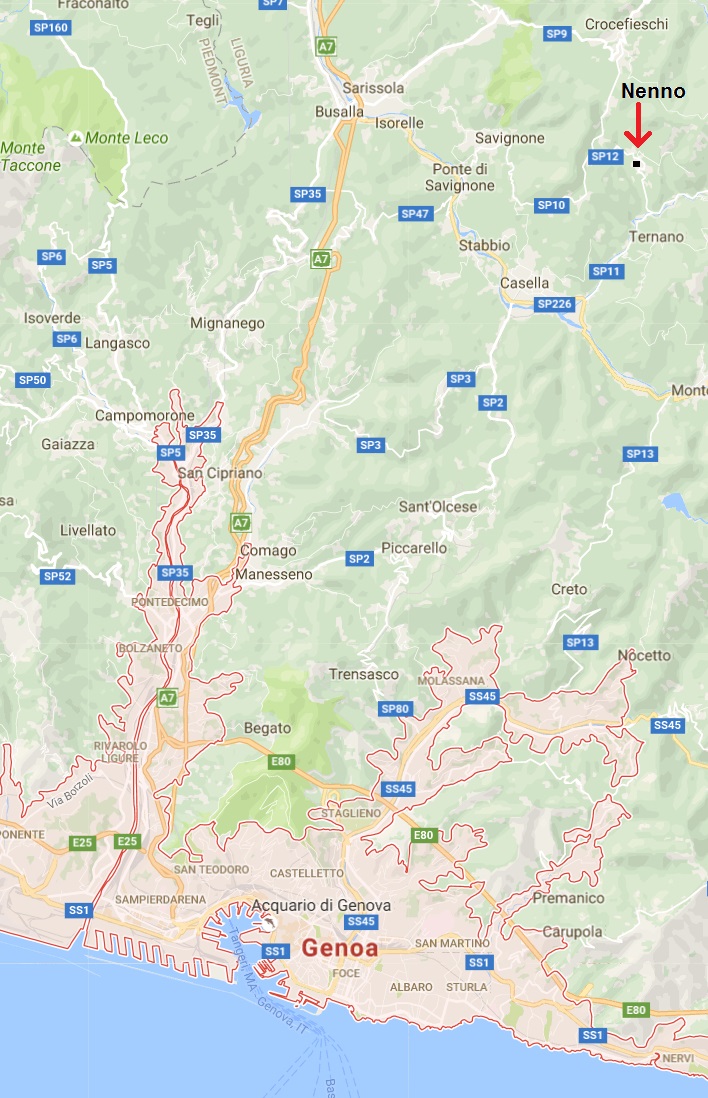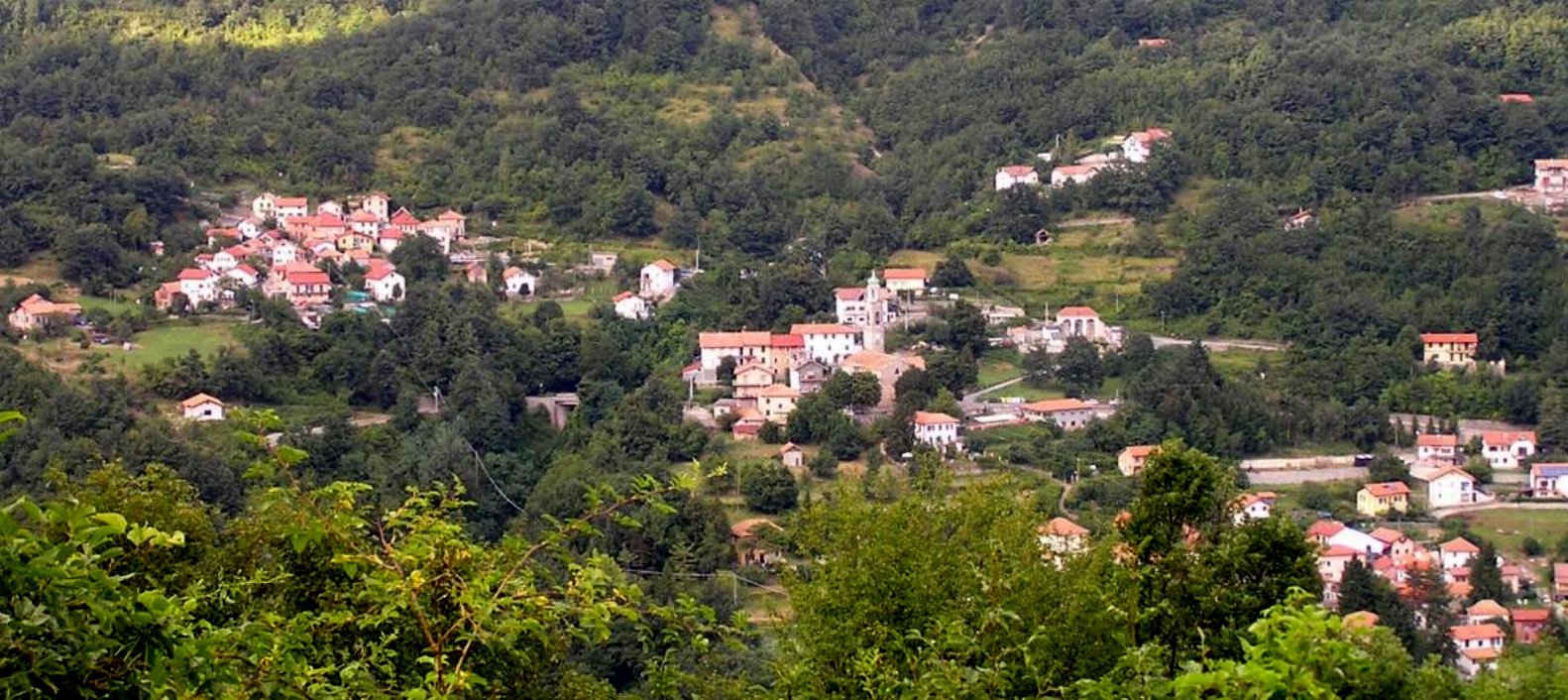|
From: alb.bg@tiscali.it [alb.bg@tiscali.it] Sent: Thursday, January 01, 2015 4:48 AM To: McFarland, Thomas L Subject: info about Nenno Dear Prof. McFarland, I'm not a student, I'm a person interested in the history of a small Italian village called Nenno (just like yours in USA). I'm now collecting informations from many archives and it could be I'll write a small book. The first written document I've found is dated 1197 However, one of the chapter my book is about the origin of the name. According to studies I've read, it could come from an ancient German word. What seems interesting to me, is the genealogy of the family Nenno you published on your site, where it can be seen how the founder of your village is originary from Germany or, going back to 1659, from the border between France and Germany. What I want to ask you is the permission to cite the link to two pages of yours: http://math.uww.edu/~mcfarlat/pictures/nxn-mxb.htm http://math.uww.edu/~mcfarlat/pictures/gentner/gentner/269.html#p2696 may I also use one or two pictures ? Thank you very much in advance for your answer.
Regards and Happy new year
Connetti gratis il mondo con la nuova indoona: hai la chat, le chiamate, le video chiamate e persino le chiamate di gruppo. |
|
Alberto:
It was very interesting to read your email. I reply in English because I know no Italian,...... You may cite or copy anything on our family website (also see below). I ask only one favor, which you can deny.......that if I ever visit Italy, I can come to your village and talk with you. This would not be soon.....perhaps in 1-3 years. I am now age 77. I see your village of Nenno is about 25 km north of Genoa, east of the A7 highway, 150 meters west of a road called "Strada provinciale di Nenno". Is this correct? Of the two pages on our website which you name below, the first describes the family of my great-great-grandfather Nickolas Nenno, who gave his name to our nearby American village of Nenno, which is very small. Here is the descent:
Nickolas Nenno The second page you cite was created by a talented researcher named Don Gentner (now dead), who built a large website devoted to his family. I copied this website to my own website, and you found a page in that copy. The earliest Nenno whom Don Gentner found was Andreas Nenaut, born in NE France but lived in Alsace. Gentner found ancestors born as early as the late 1500s http://math.uww.edu/~mcfarlat/pictures/jns-akl.htm About 10 years ago, I spoke with a woman named Betty Nenno Wilson, also now dead. She was very eager to research her family, but not as skilled as Don Gentner. One interesting claim made by Betty, in the following link, is that in the 1300s, during a split in the Roman Catholic church, the French pope used bodyguards named Nenno, from the Germanic Lombard tribes of northern Italy, probably not far from where you live. Betty cited a reference "The Ides of the Vatican", but she had no access to this record, and dropped her research there. http://math.uww.edu/~mcfarlat/pictures/wilson.htm#page5a It is probably impossible to know the origin of this name, but an obvious candidate is the German "nennen" (to name). 1500 years ago, "nennen" was "nemnen". It seems silly to have a name which means "to name", but "nennen" has other meanings, such as "to call out", a skill which could generate a name ,"the caller" in English, "chiamante" in Italian. As a German word, "nennen" competes with "rufen", but my German skill is too poor to comment further. I could find no Latin word similar to "nenno". The closest in my small Latin dictionary was "Nemus" (woods, Italian bosco).....not a very convincing source for the name of a man or village. As I wrote above, you have my permission to cite any part of our family website, such as the pages you name below. You can also copy digital images from the website (more on them below). However, since you are writing a book on these topics, you cannot copy from our website to your book if your book is to be sold for profit. If your book is free, or is a freely available scholarly publication as part of your university studies, you are allowed to copy from the website to that book. Also, the digital images which appear in the family website are of small size and relatively low resolution. However, as long as you do not use the images to make a profit, I can supply much higher resolution versions of many of these images, currently stored on CD, DVD, and several hard drives. I initially made an assumption that you were a resident of the village of Nenno. Is this true?
Cheers, |
|
Thomas,
first of all thank you for your quick and detailed answers. About the language you can write me in English, I can understand it. At present I'm not sure if the book will be free or not. For instance, it could be I'll decide to sell it to contribute the restoration of the church. However I don't think to solve this doubt before may-june. For me it's not a problem to skip the images leaving only the references to your site. You can see the text I want to place in the book open the attachment where I put both the italian version as well as an english translation I did for you. If you are plannig to visit Genova and its hinterland I can suggest you to come between may and july when the weather should be more stable and not too hot or cold. I've writtten "should" because in this last year we are experiencing many climatic changes. Furthermore I think you should avoid october, november due to the risk of floodings. As you wrote in your mail, Nenno is about 25 km north of Genova and is 600 m above the sea level. Actually I live in Genova, but I move to Nenno during the summer to pass part of the holidays and also some week-end during the year. A panoramic way to go there from Genova is passing through S.Olcese. Let me know when you are going to come to Italy: it will be a pleasure to meet you and take a walk through Nenno (and Genova, as well).
Cheers, |
|
Alberto:
There is no need to rush, but eventually you will find out approximately when the Italian village of Nenno was first established. Let me know your finding. That date could shed light on the Nennos as people. I had guessed that the village dates from the 6th century AD, but this guess was based on the assumption that it was founded by Lombards, who arrived about then. My assumption might be wrong.
Cheers, |
|
Tom,
I think we should separate the date when the village was established from that when it was named Nenno. Since the valley was for sure inhabited from the prehistory age (many object have been found in the valley from the archeologist), I guess the very first nucleus was existing in the age BC. Possibly it could be named Nenno in the 6th century, as you said. It's interesting note that in 725 AD the king of the Lombards Liutprand was in the valley to receive the mortal remains of saint Augustine, moved from Genova to Pavia. We have mont Liprando whose name seems to remeber this event. At the following link you can found a book from Ferguson, about germanic family names. "Nanno" is reported as germanic name of the 5th century (page 239), toghether with the possible derivation from Gothic. https://archive.org/details/teutonicnamesys00ferggoog You are quite skilled on this topic. Thank you for your suggestions.
Cheers, |
|
3 Origine del nome
[...omissis]
dove 3 Origin of the name
[...omissis]
where |
 |
 |